
About Urolink
Urolink's mission is ...
... to promote and encourage the provision of appropriate urological expertise and education worldwide, with particular emphasis on the materially disadvantaged ...
Timelines for developments in Urolink
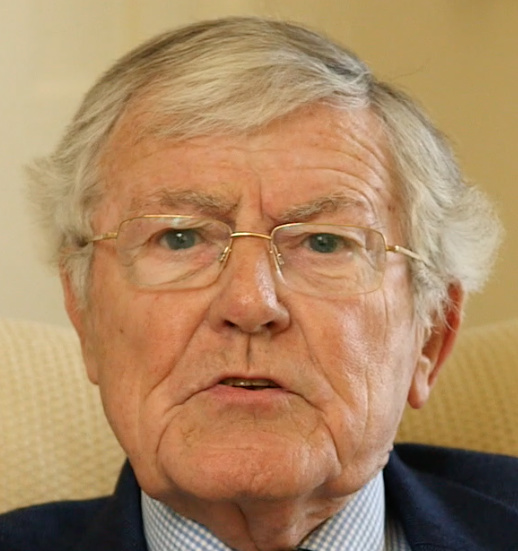 1960s
1960s
Colleagues, many of whom had transitioned into urology from general surgery, like John Ward (pictured), were making philanthropic visits to distant parts of the world to help provide support to surgical colleagues working there.
John's original liasons were in the foothills of the Himalayas in Nepal.
1983
An initial proposal was submitted by some members of BAUS to form a "Tropical Urology Society", either as a separate organisation, or as part of BAUS itself.
1985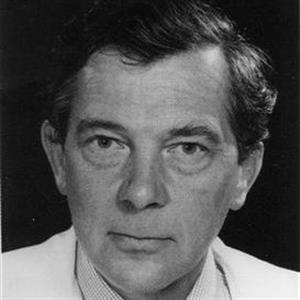
BAUS proposed the establishment of formal links with the Association of Surgeons of East Africa (now incorporated into COSECSA). During his term of office as President of BAUS, the late Professor John Blandy (pictured) invited suggestions for providing assistance to the "third world".
More about John Blandy
1988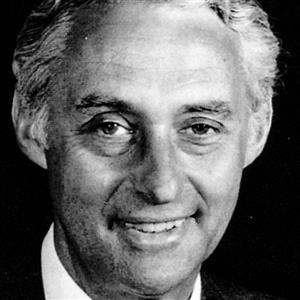
The late Professor Geoffrey Chisholm (pictured) facilitated a "Tropical / Third World Meeting" during his tenure as President of BAUS. As a result of this meeting, it was agreed that BAUS members should be canvassed about the setting up of a new section which would be known as "Urolink".
More about Geoff Chisholm
1990
A working party was formed to launch the new "society". Following this, the concept of Urolink was adopted, its constitution agreed, and its mission statement defined (see above) under the chairmanship of Mr Neville Harrison (pictured), Consultant Urological Surgeon in Brighton. A commentary of Neville's first experiences in Africa, and his part in the establishment of Urolink, can be heard in his "History of Urolink" podcast, recorded in March 2021.
Listen to Neville Harrison's podcast
1996
Urolink became an official sub-Committee of BAUS.
It was agreed that at least one of the BAUS Trustees would attend all Urolink Committee meetings (of which there are usually two each year).
Lester Eshleman (pictured with Griff Fellows), the founder of the Urology Institute at the Kilamanjaro Christian Medical Centre (KCMC), Moshi, Tanzania was awarded the prestigious BAUS St Paul’s Medal. This medal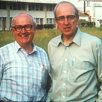 , instituted by Mr Richard Turner Warwick, is awarded, each year to a distinguished colleague from overseas whose contributions to the Association in particular, and to UK urology in general, it wishes to honour.
, instituted by Mr Richard Turner Warwick, is awarded, each year to a distinguished colleague from overseas whose contributions to the Association in particular, and to UK urology in general, it wishes to honour.
Lester was a Mennonite missionary who trained as a surgeon, and then in urology, as the need became apparent. His contribution to Tanzanian urology is remembered biennially with a clinical meeting that continues to be held in his name; he also wrote a Textbook of Urology and Nephrology in Africa, the foreword to which, written by Neville Harrison, can be accessed here.
1998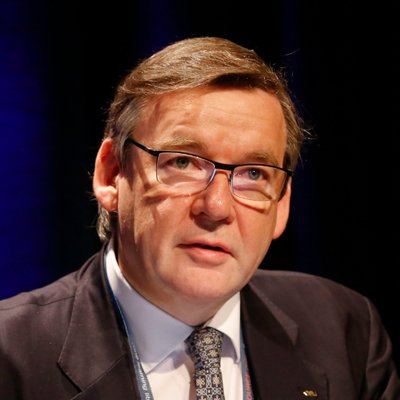
During 1998, Christopher Chapple (pictured right), Consultant Urological Surgeon at Sheffield Teaching Hospitals, Honorary Professor at University of Sheffield and Visiting Professor at Sheffield Hallam University, took over the Chair of Urolink from Neville Harrison.
The picture below was taken at the second meeting of the Urolink committee. Chris Chapple, John Ward, Frank Schweizer, Neville Harrison, Patrick Duffy and Griff Fellows are joined by representatives from CR Bard (at either end of the image) and administrative assistant Jasvinder Sidhu.
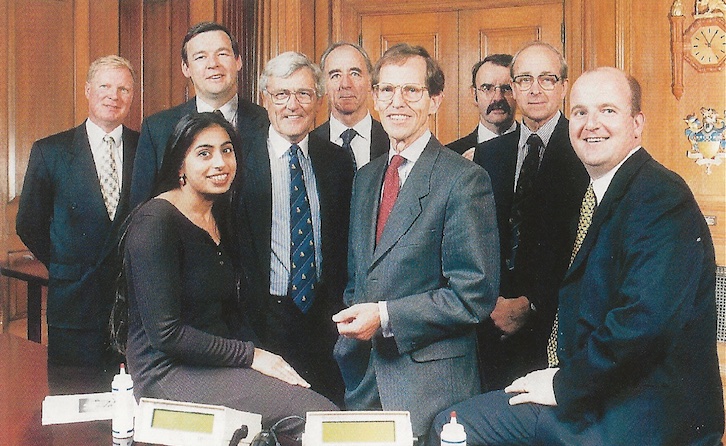
2000
Christine Evans (pictured), Consultant Urological Surgeon at Glan Clwyd Hospital, Rhyl, North Wales took over the Chair of Urolink from Chris Chapple.
Christine has probably made more visits to more overseas urology units than any other clinician, and defined the standards that Urolink still uses to measure improvements in the units it supports.
2001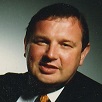
Steve Payne (pictured), Consultant Urological Surgeon at Manchester Royal Infirmary, took over the Chair of Urolink from Christine Evans.
Steve has since visited urology units in sub-Saharan Africa, often with fellow UK urologists who specialise in the treatment of urethral strictures, to teach surgical principles and techniques related to pelvic fracture injuries.
2002
UROLINK: a model for working together in a changing world by Neville Harrison was published in the British Journal of Urology International (BJUI) as part of a "Tropical Urology" supplement.
Download the report
2005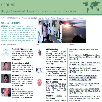
Urolink launched its first website with generous sponsorship from AstraZeneca.
To begin with, this was a "standalone" site, completely separate from, and ahead of, BAUS who did not have their own internet portal in 2005!
2006
Ru MacDonagh (pictured), Consultant Urological Surgeon at Musgrove Park Hospital, Taunton took over the Chair of Urolink from Steve Payne.
Ru was instrumental in establishing Health Improvement Project in Zanzibar (HIPZ), founded in 2006. Starting from a small project to renovate, equip and run a 36-bed cottage hospital in southern Zanzibar, a 10-year agreement was established in 2007, giving HIPZ management responsibility for including Makunduchi Hospital under its aegis, with the aim of improving the hospital facilities and clinical services. HIPZ now runs these hospitals at a day-to-day level.
Further information on HIPZ
2007
Christine Evans was awarded the BAUS St Peter’s Medal for her tireless work in forming links with multiple centres across the developing world, and for promoting urological and transplantation services there. The citation for Christine was given by Steve Payne
Download a PDF of Steve's citation
2012
Christine Evans made her last Urolink visit (to Iraqi Kurdistan) before her retirement.
Read Christine's final report
2016
Suzie Venn (pictured), Consultant Urological Surgeon in Chichester and Worthing took over the Chair of Urolink from Ru MacDonagh - briefly co-chairing with Philip Thomas, Consultant Urological Surgeon in Brighton at the start of her tenure. Suzie continues to occupy the Chair until the present day.
She has already organised working trips to sub-Saharan Africa, including the 2019 visit to KCMC for the 13th Jacob Lester Eshleman workshop.
2019
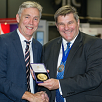 Ru MacDonagh (pictured left eceiving the award from BAUS President, Duncan Summerton) was awarded the BAUS St Peter’s Medal. Ru’s efforts in developing a comprehensive medical - but especially obstetric - service in Zanzibar (HIPZ) were recognised by the award of this prestigious medal
Ru MacDonagh (pictured left eceiving the award from BAUS President, Duncan Summerton) was awarded the BAUS St Peter’s Medal. Ru’s efforts in developing a comprehensive medical - but especially obstetric - service in Zanzibar (HIPZ) were recognised by the award of this prestigious medal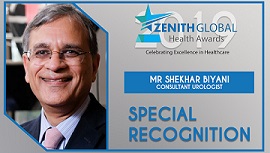 . The citation for Ru, given by John McGrath, can be viewed here.
. The citation for Ru, given by John McGrath, can be viewed here.
Shekhar Biyani (pictured right) receives the Zenith Healthcare Special Recognition Award for his work in consolidating educational activities across a broad swathe of African countries.
More about the Award
2021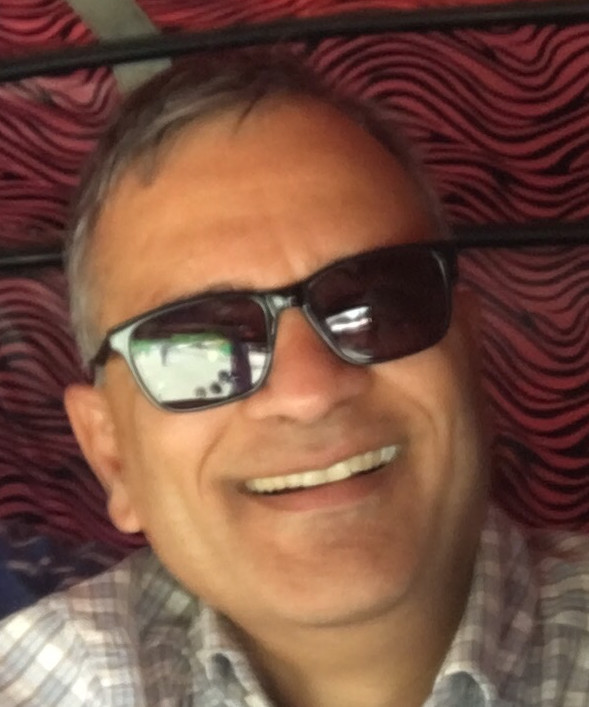
Chandra Shekhar Biyani (pictured) received the BAUS John Anderson medal for 2022 for his inspirational work with the Bootcamp concept. Shekhar, who has a Masters in simulation training, evolved the model so that is has become established, and is now delivered locally, at a number of sites across Africa. Shekhar also assisted in the delivery of virtual simulated training courses during the 2020/21 Covid 19 pandemic, when face-to-face instruction had been logistically impossible.
2022
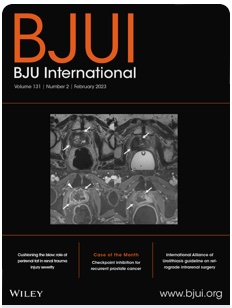 In 2022, 20 years after the publication of a special Urolink supplement, the BJUI agreed to publish two editorials and 12 papers about Urolink's activity in sub-Saharan Africa (sSA). This resource, "Urolink 20 years on", was written by twenty UK or US-based contributors, 15 of them from LMICs in sub-Saharan Africa, and was edited by Steve Payne.
In 2022, 20 years after the publication of a special Urolink supplement, the BJUI agreed to publish two editorials and 12 papers about Urolink's activity in sub-Saharan Africa (sSA). This resource, "Urolink 20 years on", was written by twenty UK or US-based contributors, 15 of them from LMICs in sub-Saharan Africa, and was edited by Steve Payne.
It covered: defining need, providing a sustainable resource in an ethically appropriate way teaching, mentoring defined urological issues; urethral stricture disease, paediatric urology, stone disease, and female urinary incontinence, all of which continue to be major issues in LMICs.
It also touched on the differences in regulation between high and low income countries and how education and maintenance of standards of care have helped improve patient care.
Today
Which direction should Urolink take in the future? We're always interested to hear your views, so let us have any suggestions by e-mail
Key Areas of Urolink Activity
Urolink's ethos is to provide help in setting up self-sustaining training centres in low, or low-middle, income countries but has explored many other centres:
- LINKS - encouraging the establishment of links between individual departments & organisations
- VISITS - encouraging & supporting professional visits to work with colleagues overseas
- TRAINING
- supporting appropriate urological training of surgeons in their home countries;
- helping UK trainees experience surgery in low or middle-income countries (LMICs)
- EQUIPMENT - assisting with the provision of hardcopy and online educative material, surgical equipment and disposibles, as well as IT support where needed
- ADVICE
- providing remote mentoring to link centres;
- advising BAUS Council on matters relating to urology in LMICs;
- advising urological associations abroad about training, professional development & examinations
Urolink's Basic Rights Charter
Urolink believes that all the supported units in sub-Saharan Africa (and smaller units elsewhere) should be able to achieve the following when presented with one of the listed urological conditions:
- RETENTION OF URINE - early relief by urethral or suprapubic catheter; developing endoscopic prostate surgery.
- HAEMATURIA - education about pathology and the importance of early diagnostic investigation, especially in areas with endemic schistosomiasis.
- URINARY STONES - promotion of endoscopic m,anagement techniques such as URS and PCNL.
- URETHRAL STRICTURES - treatment by bouginage or visual urethrotomy, then self-catheterisation.
- URETHRAL TRAUMA
- safe initial management followed by referral for definitive treatment;
- training in urethroplasty, especially in the surgical treatment of pelvic fracture strictures.
- FEMALE URINARY INCONTINENCE
- increasing awareness of the consequences of urinary incontinence in women;
- early surgical repair of vesico-vaginal fistula.
- MALE CIRCUMCISION - safe techniques.
- PENILE CANCER - early diagnosis & treatment.
- PROSTATE CANCER - enable early diagnosis and facilitate management.
Urolink's Code of Conduct

Global Code of Conduct
Urolink is a Committee of the British Association of Urological Surgeons (BAUS) which aims to encourage and support the establishment of links with individual departments and organisations in low or middle-income countries (LMICs) and to facilitate professional visits to work with colleagues in resource-poor settings.
Urolink's core values
At Urolink, everything we do is guided by our core values:
- Respect - we treat everyone with dignity and respect, and champion the rights and contributions of all to chieve a fairer world;
- Accountability - we are accountable to those whose lives we hope to help, to those we work with and to those who support us;
- Courage - we are bold and inspoiring in our actions & words in promoting global urological care and education;
- Collaboration - we work with others to maximise our impact, respecting diversity and difference in the opursuit of common goals;
- Innovation - we are creative & agile, always learning and prepared to take risks to accelerate change;
- Integrity - we act with honesty & conviction, and our actiona are consistent with openness, equaklity & human rights.
Professional values
Urolink expects professional conduct from individual’s working with it according to the General Medical Council’s ‘Good Medical Practice1’. Working on behalf of Urolink often means holding a position of power and trust in environments where patients are more vulnerable and we expect individual’s representing Urolink to uphold the professional standards expected in UK practice.
The duties of a doctor registered with the GMC
Patients must be able to trust doctors with their lives and health. To justify that trust you must show respect for human life and make sure your practice meets the standards expected of you in four domains:
- Knowledge, skills & performance
- make the care of your patient your first concern
- provide a good standard of practice & care
- keep your professional knowledge & skills up-to-date
- recognise & work within the limits of your competence
- Safety & quality
- take prompt action if you think that patient safety, dignity or comfort is being compromised
- protect & promote the health of patients & the public
- Communication, partnership & teamwork
- treat patients as individuals & respect their dignity
- treat patients politely & considerately
- respect patients' rights to confidentiality
- work in partnership with patients
- listen to & respond to their concerns & preferences
- give patients the information they want or need in a way they can understand
- respect patients' right to reach decisions with you about their treatment & care
- support patients in caring for themselves to improve & maintan their health
- work with colleagues in the ways that best serve patients' interests
- Maintaining trust
- be honest & open, and act with integrity
- never discriminate unfairly against patients or colleagues
- never abuse you patients' trust in you, or the public's trust in the profession
You are personally accountable for your professional practice and must always be prepared to justify your decisions and actions.
Urolink’s experience of medical environments in LMICs has suggested that UK practitioners working abroad should be reminded about the following four areas of good practice. It considers these of particular relevance to working in resource-poor environments:
- Safeguarding - adults & children should all be considered vulnerable and have safe care appropriate to, and available in, their clinical setting;
- Equality - patients & colleagues should be treated fairly, with respect, irrespective of personal beliefs or biases;
- Confidentiality - patient information should be treated confidentially, within the confines of local systems; patient images should not be take or used without appropriate consent, and should not be disseminated via social media without permission; and
- Probity - you must be honest in all financial & commercial dealings; you must not ask for, or accept, any inducement that affect patient care.
References
- Good Medical Practice (2013) GMC, London
- Our safeguarding policy (2019) GMC, London
- Protecting children and young people. The responsibilities of all doctors (2013) GMC, London
- Personal beliefs and medical practice (2013) GMC, London
- Confidentiality: good practice in handling patient information (2017) GMC, London
- Making and using visual and audio recordings of patients (2011) GMC, London
- Doctors use of social media content (2013) GMC, London
- Financial and commercial arrangements and conflicts of interest (2013) GMC, London
Download a full copy of the Code of Conduct 2023
Sponsoring, or Donating to, Urolink
Donations from individuals are always gratefully received, as are any legacies or bequests to help Urolink in its work. Urolink's funds are held within the charitable status of the British Association of Urological Surgeons Ltd and are distributed by the agreement of the committee at its biannual meetings.
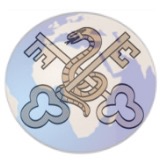 In March 2025 BAUS CEO Mary Suphi facilitated the channelling of donations to Urolink by opening a BAUS JustGiving page to help with Urolink's activities. If you are doing anything to raise donations for Urolink, and want to GiftAid the donations, then you can do that by clicking the circular button to the left of this message. Please copy the image (Urolink donation, right mouse click) below into the comments box on the JustGiving page, so that the donation is recognised as being aimed, specifically, to support Urolink.
In March 2025 BAUS CEO Mary Suphi facilitated the channelling of donations to Urolink by opening a BAUS JustGiving page to help with Urolink's activities. If you are doing anything to raise donations for Urolink, and want to GiftAid the donations, then you can do that by clicking the circular button to the left of this message. Please copy the image (Urolink donation, right mouse click) below into the comments box on the JustGiving page, so that the donation is recognised as being aimed, specifically, to support Urolink.

To sponsor Urolink on a more permanent basis please email Hannah Doyle.
Should you have surplus or out-of-date equipment that may be of use in LMICs, then please email Shekhar Biyani, the Urolink equipment lead.

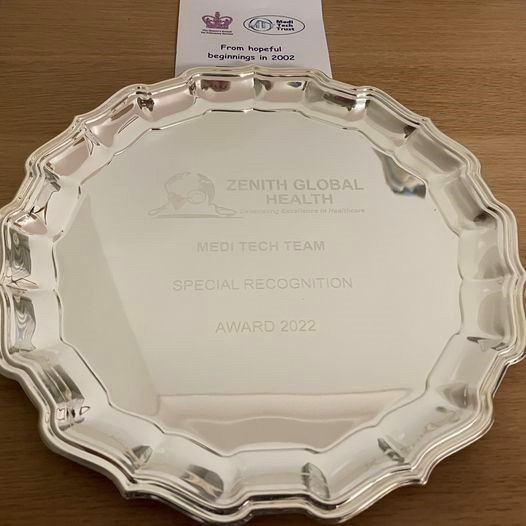 Urolink has evolved a major link for the collection and out-of-country transport of used or out-of-date equipment with the Medi Tech Trust and their Medigive Initiative. Medi Tech Trust received the Queen's Award for Voluntary Services in 2021 and was given special recognition for its achievements in disseminating equipment in the 2022 Zenith Global Health awards (pictured right).
Urolink has evolved a major link for the collection and out-of-country transport of used or out-of-date equipment with the Medi Tech Trust and their Medigive Initiative. Medi Tech Trust received the Queen's Award for Voluntary Services in 2021 and was given special recognition for its achievements in disseminating equipment in the 2022 Zenith Global Health awards (pictured right).
Urolink's donors
Urolink is very grateful to the following organisations and companies who have sponsored us or supported specific Urolink activities over the years:
- AstraZeneca, BAUS, British Journal of Uroklogy International (BJUI), Boston Scientific & The Urology Foundation (TUF) - for their support for all Urolink activities, sponsorship of specific link centres and encouragement of trainee participation, and help with online developments;
- Olympus KeyMed & Karl Storz - for donation of equioment
- BARD, BJUI, Karl Storz, Newson Health, BAUS Section of Trainees (BSoT, formerly SURG), TUF & Yamanouchi - for donation of specific travel prizes and awards.
In addition we are very grateful to the following for their donations to help Urolink with its activities.
Honours & Awards to Urolink Collaborators
1 996
996
Lester Eshleman (pictured with Griff Fellows), the founder of the Urology Institute at the Kilamanjaro Christian Medical Centre (KCMC), Moshi, Tanzania was awarded the prestigious BAUS St Paul’s Medal. This medal, instituted by Mr Richard Turner Warwick, is awarded, each year to a distinguished colleague from overseas whose contributions to the Association in particular, and to UK urology in general, it wishes to honour.
Lester was a Mennonite missionary who trained as a surgeon, and then in urology, as the need became apparent. His contribution to Tanzanian urology is remembered biennially with a clinical meeting that continues to be held in his name; he also wrote a Textbook of Urology and Nephrology in Africa, the foreword to which, written by Neville Harrison, can be accessed here.
2007
Christine Evans was awarded The BAUS St Peter’s Medal for her tireless work in forming links with multiple centres across the developing world, and for developing urological and transplantation services there. The Citation for Christine, given by Steve Payne, can be viewed here.
2019
Ru MacDonagh (pictured receiving the award from BAUS President, Duncan Summerton) was awarded the BAUS St Peter’s Medal. Ru’s efforts in developing a comprehensive medical - but especially obstetric - service in Zanzibar (HIPZ) were recognised by the award of this prestigious medal. The citation for Ru, given by John McGrath, can be viewed here.
Chandra Shekhar Biyani receives the Zenith Healthcare Special Recognition Award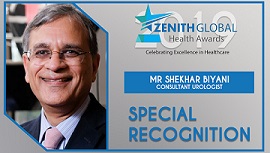 for his work in consolidating educational activities across a broad swathe of African countries.
for his work in consolidating educational activities across a broad swathe of African countries.
 2023
2023
Chandra Shekhar Biyani (pictured) receives the BAUS John Anderson medal for 2023 for his inspirational work with the Bootcamp concept. Shekhar, who has a Masters in simulation training, evolved the model so that is has become established, and is now delivered locally, at a number of sites across Africa. Shekhar also assisted in the delivery of virtual simulated training courses during the 2020/21 Covid 19 pandemic, when face-to-face instruction had been logistically impossible.
_1.jpg) 2023
2023
Chandra Shekhar Biyani was awarded the British Empire Medal in the King's 2023 New Year's Honours list for his services to Medical Education. Shekhar's ST3 Bootcamps, a pinnacle of success in post-graduate education for the specialty and something emulated by other specialties, has transported that concept across Urolink's LIC domain. It is now running in a self-sustaining way in a number of centres in sub-Saharan Africa.
2024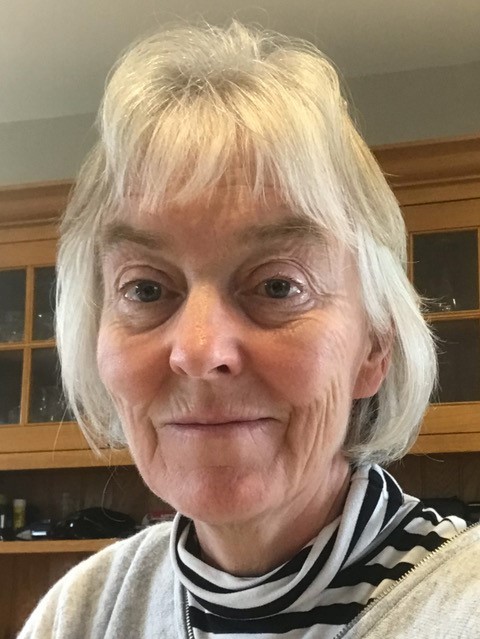
Suzie Venn was awarded the BAUS John Anderson medal for 2024 for her commitment to the provision of education in Global Urology. Suzie has had a longstanding association with a number of centres in sub-Saharan Africa, particularly those at KCMC in Moshi Tanzania and Kamuzu Central Hospital in Lilongwe Malawi.
Read Suzie's award biography
2024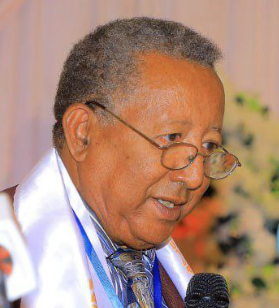
Professor Aberra Gobezie was awarded Lifetime awards by the Urological Society of Ethiopia and Hawassa University College of Medicine and Health Sciences for his unwavering commitment, dedication and exceptional contributions to both organisations over the years. Aberra has been a very good friend to Urolink, was instrumental in setting up the urology service in Hawassa and will always be in our memories for his roles in the Southern Nations and across a broader Ethiopian playing field.
View some images of Aberra's award ceremonies
Important people in Urolink's journey
In this short section we celebrate those whose lives have impacted significantly on Urolink. We thank them for their contribution.
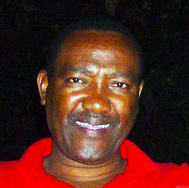 Kien Alfred Mteta 1957 - 2023
Kien Alfred Mteta 1957 - 2023
Father of KCMC, and beloved trainer of so many embryo urologists in East Africa
It was with the greatest sadness, and regret, that we heard of the sudden, and unexpected, death of Professor Kien Alfred Mteta on Wednesday 22 November 2023. Prof Mteta was formerly Head of department at the COSECSA/ASEA Institute of Urology at the Kilimanjaro Christian Medical Centre (KCMC) in Moshi Tanzania and Dean of the Kilimanjaro Christian Medical College.
Alfred was the first Urological Surgical Consultant to join Dr Lester Eshleman at KCMC. Together with his colleagues Drs Jasper Mwambo and Frank Bright, Alfred was a mentor to many of the hundreds of trainees who came from all parts of East Africa to train in urology at the Institute. Alfred had a very long partnership with BAUS and Urolink, especially during the 2005 building programme of the Urology Unit at KCMC, and was a frequent visitor to the BAUS Annual Meeting.
Fortunately, Suzie Venn, David Dickerson and Ram Subramanuiam were able to join the service of remembrance in Alfred's honour and to pay their respect in person. Our sincerest condolences were sent to his family and colleagues, knowing that his wise counsel, support and friendship will be greatly missed in Tanzania, and beyond.
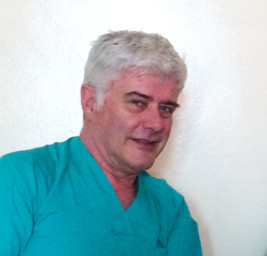 Phil Thomas 1958 – 2022
Phil Thomas 1958 – 2022
Father, husband, surgeon and friend to many
Sadly, Phil passed away, way ahead of his time at the age of 63, on 12 May 2022.
Phil was a Consultant in Brighton and followed Neville Harrison's example in becoming actively involved in urology in East Africa. He travelled extensively to teach urethroplasty, one of the big needs in developing low income countries, and became a regular feature of the urological landscape in Tanzania.
At Kilimanjaro Christian Medical Centre in Moshi, he forged strong relationships with Alfred Mteta and Jasper Mwambo and never missed one of the Lester Eshleman workshops in over 30 years. His last visit to KCMC was just before the pandemic, in 2019 when, characteristically, he led a multi-faceted team including two trainees to provide a whole suite of seminar-based learning. This prefaced some challenging surgery of which Phil was always in the midst.
His dedication to the dissemination of urological knowledge was, undoubtably, something in which he took great pride, and from which a myriad of African trainees benefited.
Phil was an exemplar of Urolink's founding principles, and is survived by his wife Caryl and his three children.
A fuil obituary, written by Suzie Venn and his son, Peter, was published in Trends in Urology & Mens Health on 15 November 2022,
View the full obituary by Suzie & Peter
← Back to Urolink homepage